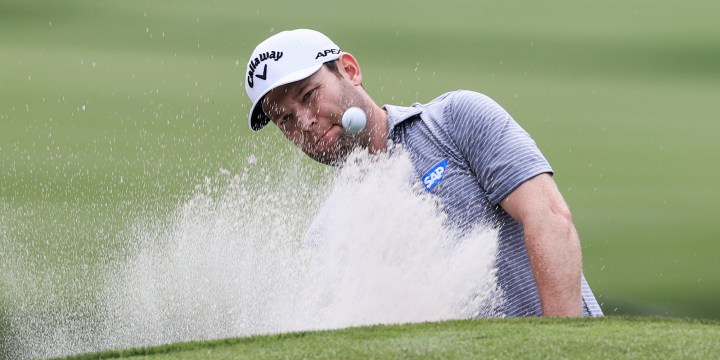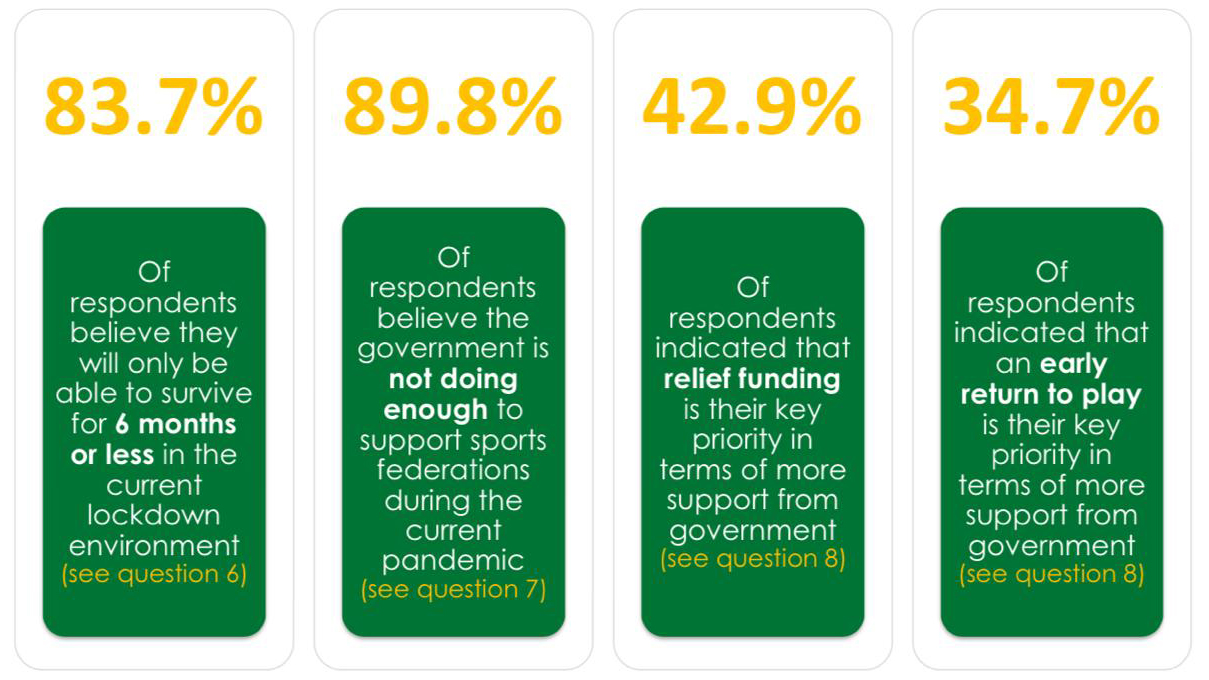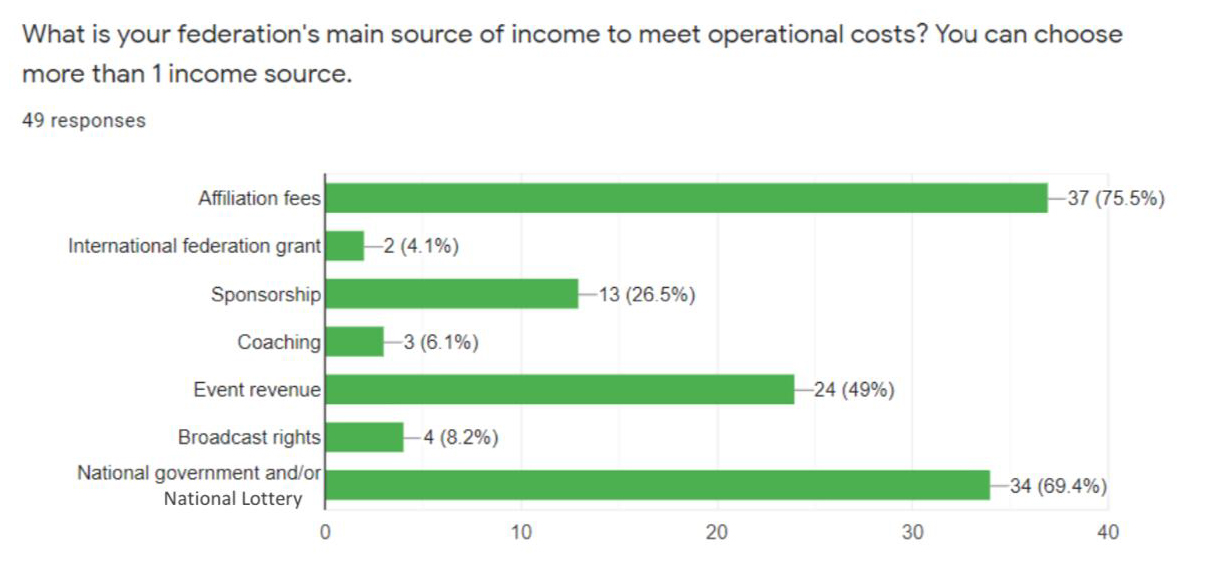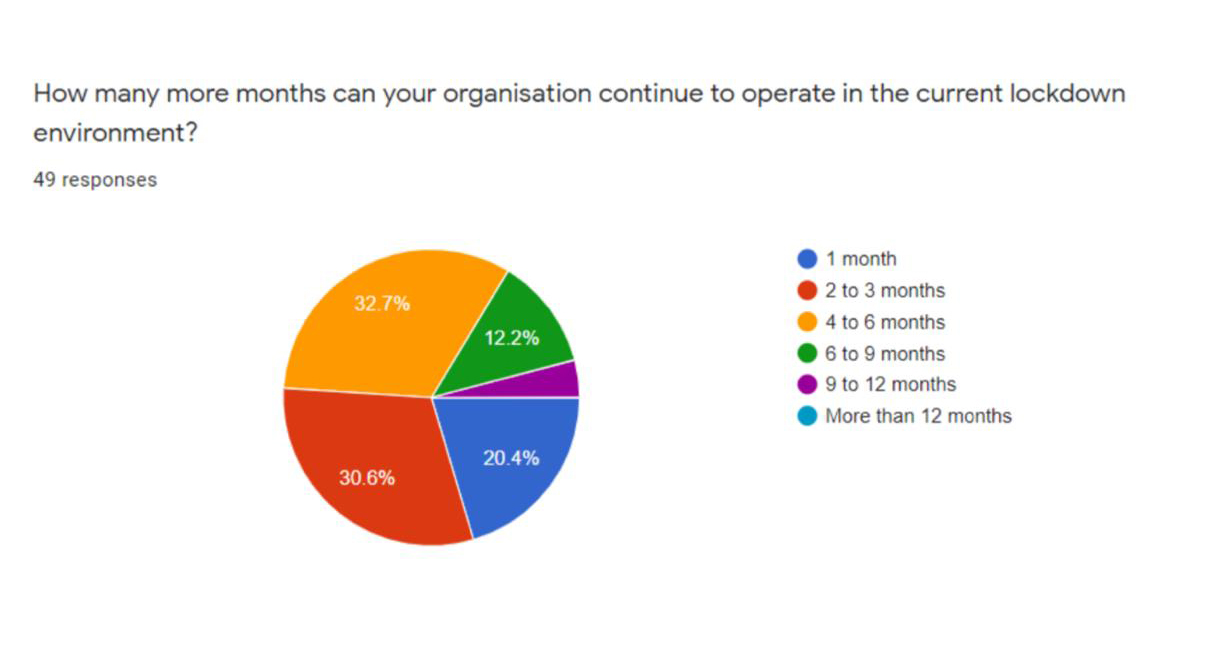GAME OFF
Bleak picture of South African sport emerges following Covid-19 impact survey

Sport is mentioned in terms of restrictions relating to lockdown regulations, but there has been no rescue package for the entire industry.
A staggering 83.7% of sports federations surveyed by the South African Sports Confederation and Olympic Committee (Sascoc) believe they won’t survive longer than six months under the current Covid-19 lockdown restrictions.
That is one of the bleak pictures to emerge from respondents to Sascoc’s SA Sport Day Zero survey, as the umbrella body attempts to build a picture of the state of sport in the country under the coronavirus pandemic.
Almost all of the sports federations surveyed could be classed as “small sports” and have different business models compared to the big three of football, rugby and cricket, which have billion-rand balance sheets.
 While those three sports were included in the survey, they are worlds apart from the likes of gymnastics, hockey or badminton. A sizable 49 of 76 sports federations responded to the survey, which revealed a bleak picture for the sports industry.
While those three sports were included in the survey, they are worlds apart from the likes of gymnastics, hockey or badminton. A sizable 49 of 76 sports federations responded to the survey, which revealed a bleak picture for the sports industry.
Although the survey questionnaire was subjective and didn’t ask for scientific metrics to a list of eight questions, the collated responses showed an industry in collapse. Earlier this month smaller sports indicated that they were reaching a precipice.
 The most glaring number in the survey was that 83.7% of federations believe they would be out of business in six months from the date of the initial lockdown on 27 March this year.
The most glaring number in the survey was that 83.7% of federations believe they would be out of business in six months from the date of the initial lockdown on 27 March this year.
But more worryingly, 30.6% could only survive for another two to three months unless there is a return to play, or some meaningful government funding.
 Almost all those that responded (89.8%), believe that the national government should be doing more to assist federations during the pandemic. The survey revealed that the best form of relief would come in two ways – more funding from the government (42.9%) and an earlier return to play (34.7%).
Almost all those that responded (89.8%), believe that the national government should be doing more to assist federations during the pandemic. The survey revealed that the best form of relief would come in two ways – more funding from the government (42.9%) and an earlier return to play (34.7%).
Major sports with big budgets can absorb the current situation – for now – as most of their income is derived from the sale of broadcast rights. Those deals are under strain, but there is a dialogue between football, cricket and rugby and their broadcast partners and they have the wherewithal to survive for longer.
Smaller sports, as the survey showed, rely mainly on affiliation fees, lottery grants and event earnings as their major sources of modest income. Those have been wiped out with the suspension of all organised sport under the government’s Covid-19 restrictions.
Sascoc should be the voice of those sports federations carrying the urgent message to national government about the need to save sports federations. But Sascoc is beset with infighting and is currently embroiled in a leadership battle, which has all but paralysed the organisation.
It has left most sports federations feeling isolated. Several administrators have privately expressed their lack of confidence in Sascoc to Daily Maverick while there is also concern that the sports industry has not been directly addressed in government communication.
Sport is mentioned in terms of restrictions relating to lockdown regulations, but there has been no rescue package for the entire industry.
Last month, President Cyril Ramaphosa detailed the establishment of a R150-million fund for individual athletes and members of the arts industry, but that was allocated on a case-by-case basis. There were also strict criteria for athletes to qualify for the relief package.
“Only athletes who were confirmed to participate at events that have now been cancelled or postponed due to Covid-19 and whose income is generated solely through specific sporting events,” could apply, according to the wording by the Department of Sport, Art and Culture.
Last week Sports Minister Nathi Mthethwa revealed that only 93 athletes had been helped – each receiving a R20,000 grant. Applications for relief have also been closed and it’s unclear if the full budget was used.
It was welcome funding for individuals, but the small allocation is primarily aimed at elite athletes. The entire industry employs thousands of people directly and indirectly.
Value of sports industry difficult to quantify
Tax records give an indication of sports federations’ earnings and expenses but it doesn’t measure the economic impact on those indirectly suffering due to sports’ hiatus. The exact value of the SA sports industry is difficult to quantify.
A report by accounting firm PWC put the value of the SA sports industry at R15.285-billion in 2016. That metric measured five key criteria – gate revenue, media (broadcast) rights, sponsorships, merchandising and sports betting. It didn’t account for the numerous cottage industries that flourish in the greater sporting orbit.
In tennis, for example, there are hundreds of coaches nationally who work at schools and clubs who have been unemployed since the lockdown began. That is not reflected in Tennis South Africa’s financial statements.
Golf is similar – hundreds of club pros and thousands of caddies across the country have been unable to make a living since lockdown began.
In bigger sports, indirect beneficiaries of sports events such as vendors, security personnel, media, grounds staff, caterers and a host of other satellite industries have lost most of their work. These are all intricately connected to the sporting ecosystem.
Both tennis and golf have established their own funds to assist members, but both are falling well short of their needs to keep their industries afloat at a grassroots level. The long-term picture for sport is bleak if the majority of coaches in different codes are forced out of the greater sporting industry.
Tennis South Africa and Golf RSA have both made strong representations to Mthethwa for a return to play under strict Covid-19 restrictions.
“While Tennis SA recognises that public safety must remain the number one priority during this national crisis, our concern is that a blanket approach to regulating sport in the current Covid-19 environment, will severely damage the ecosystems of many sporting codes in this country,” Tennis SA said in a 15-page proposal to the government.
“As such, we believe that increased attention must be given to understanding the differences between team and individual sports, as well as contact versus non-contact sports. This proposal makes the case that tennis (as well as other non-contact, individual sports) needs to be considered as a low-risk activity, in the context of the national risk-adjusted strategy.
“Tennis is an individual and non-contact sport and so poses a much lower risk of transmission. In South Africa it is played outdoors, normally with only two people on the court. The distance from baseline to baseline on the court is 23.77m.
“In Italy, one of the country’s leading universities – Politecnico di Torino – has collaborated with the Italian National Olympic Committee (CONI) to release a 400-page report detailing its findings about which sports are safest in a coronavirus pandemic environment.
“The study lists 387 sport disciplines that have been categorised from 0 to 4 depending on the risk of Covid-19 spread. On this scale, 0 represents non-existent risk, 1: weak risk, 2: medium risk, 3: high risk, and 4: very high risk. Among the factors considered are the conditions for training, competition and public presence. According to the study, sports that fall into the 0 category, with ‘almost no possibility’ of spreading the infection, are disciplines such as sailing, open water swimming, golf, and tennis.”
South African sport though, seemingly remains a peripheral issue in the overall strategy in the fight against Covid-19 even though thousands, possibly hundreds of thousands of livelihoods are at stake if the lockdown continues.
The DA waded into the arena, demanding that some sports be allowed to resume.
“The DA is of the view that the reopening of non-contact sports codes like swimming, tennis, golf, athletics and others, without the presence of spectators, is possible if strict hygiene and Covid-19 protocols are in place,” DA shadow minister for sport Tsepo Mhlongo said.
“Many athletes were prevented from applying for relief assistance due to the department’s inefficiencies and have lost their last opportunity to access some sort of a lifeline. Since the department is refusing to give them a second chance to access financial assistance, the right thing to do is to reopen non-contact sports codes where possible.”
Sascoc has a poor governance record, but by conducting this survey there has been an acknowledgement that sport needs to measure its problem so that it can make a stronger case for funding and relief. But it might be too little, too late. DM


















